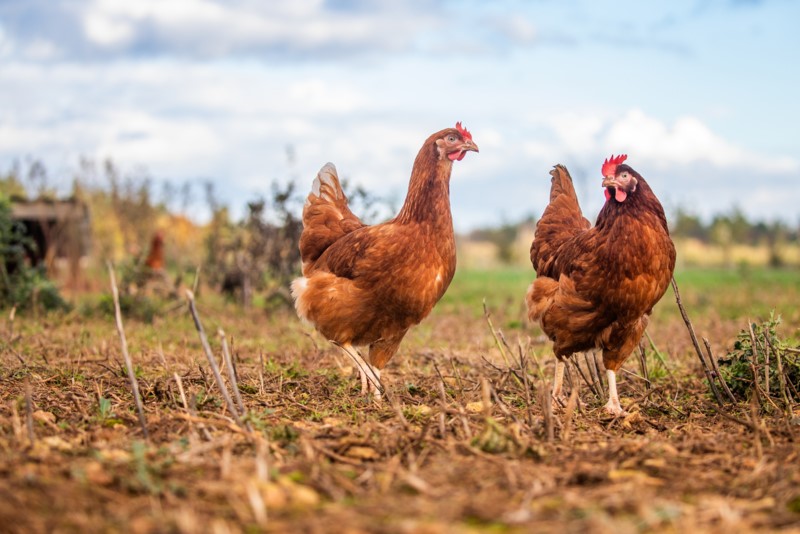
RSPCA Assured has extended the pause to the roll out of its new welfare standards for laying hens for a further nine months due to the concerns raised by farmers.
The news, announced today (26 April), means farmers can continue to use the current version of the standards, published in 2017, until February 2025.
Egg producers had raised concern over implementation of the RSPCA's new, tougher welfare standards.
In response, it announced amendments earlier this year, including extending the timeline for natural daylight by one year to 1 January 2031.
The body also removed the veranda requirement for refurbished and new member free-range systems.
And in March, RSPCA Assured announced a pause to the roll out of its new welfare standards for three months.
But now the standards have been put on hold for a further nine months, with the body saying it "recognises the importance of taking the appropriate time to listen to our members".
Kelly Grellier, interim chief operations officer at RSPCA Assured, said: “Our members are fundamental in helping us improve hen welfare.
"Therefore, ensuring we listen to them and provide proper support to help them meet the new standards is our top priority. To do this effectively, we have to be flexible.
"Extending the current pause until 2025 will give us more time to talk to more members and offer more support tailored to their specific needs”
Over the coming months, RSPCA Assured said it will be offering in person meetings with farmer members.
The aim of these will be to understand any challenges that farmers are facing and work with them to find solutions to help them achieve the new standards.
RSPCA Assured will also be developing UK-based case studies to demonstrate how natural daylight can be applied in a variety of laying hen farming systems.
The development of case studies will be ongoing over the next few years, the body confirmed. When each case study is completed, it will be shared with both RSPCA Assured members and the industry.
Ms Grellier said: “In addition to case studies and in person support, we will continue to review how we can improve engagement with members and the industry when developing new standards."
What are the new standards?
RSPCA Assured's new laying hen welfare standards, which were revised earlier this year, include the following:
Veranda requirements
• No free-range members are required to install verandas.
• The requirement for new free-range members or existing members carrying out a major refurbishment to install a veranda, originally announced in November, has been removed.
• The RSPCA and RSPCA Assured will jointly engage with industry to conduct an in-depth review of installing verandas on free-range systems.
• Verandas must be installed on all barn buildings by no later than 1 January 2030.
• The requirement for newly approved buildings and refurbished buildings to install verandas from 1 May 2024 has been removed, this provides additional time for both existing and new barn members to install verandas.
Natural daylight requirement
• Additional natural daylight within the main laying house, corresponding to at least 3% of the total floor area, must be provided in all free-range systems by no later than 1 January 2031.
• Popholes can be counted towards the natural daylight allowance. Many free-range producers will already be providing approximately half of the natural daylight requirement through existing popholes.
• Newly approved buildings and refurbished buildings are no longer required to install windows from May 2024.
• Natural daylight within the main laying house, corresponding to at least 3% of the total floor area, must be provided in all barn systems by no later than 1 January 2031.
• Newly approved buildings and refurbished buildings are no longer required to install windows from May 2024.
